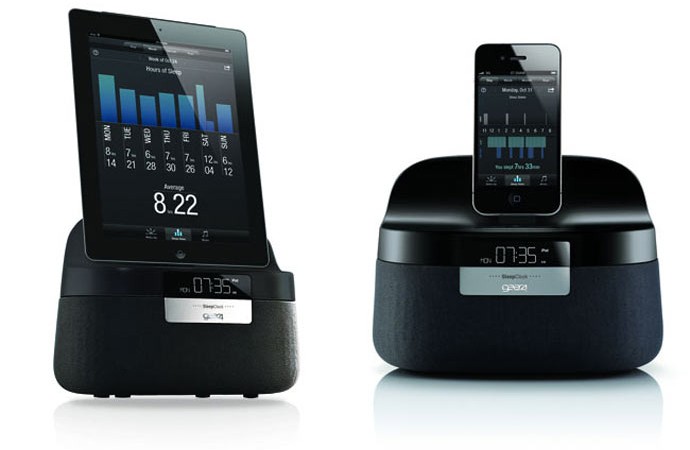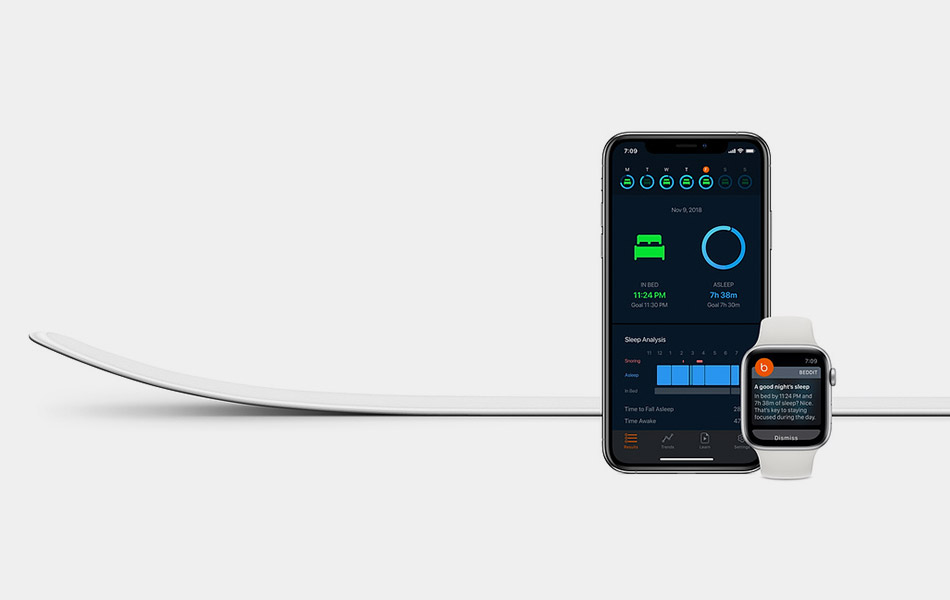

PSG uses electrodes and other sensors to measure brain waves, blood oxygenation level, eye and leg movements, heart rate, and breathing.

The gold standard for sleep measurement is polysomnography (PSG). Where budget is an issue, we suggest opting for relatively inexpensive sleep tracking apps that utilize the hardware on your phone, or skipping straight to the self-awareness and behavior change practices (and sleep hygiene practices) that wearables encourage. For that reason, price was not a driving force in our recommendations.
We take the position that if you're willing to spend $200 on a sleep wearable that ends up being frustrating, inaccurate, and gets stashed in a drawer after a couple of weeks, then you might as well invest $400 in a wearable that you'll use to positively influence your habits … for years. In general, people tend to wear rings most consistently, followed by watches, and then other types of wearable (e.g., headbands and chest straps). We ranked the different types of wearables (ring, watch, strap, headband, etc.) based on published research, followed by our coaches’ feedback, feedback from our users, and lastly from our own experience. Although not everyone is a data nerd, we consider access to personal information essential for your autonomy and agency as a user - and a standard worth putting dollars behind.Ĥ.
#S plus sleep monitor download
We prioritize devices that let you download your own data. Examples of innovative data ouputs include continuous blood glucose or temperature, unusually good app design, or novel combinations of algorithms.ĭevices we recommend allow you to learn from the real patterns and numbers (e.g., an overnight heart rate trace), rather than rely only on company-derived sleep scores (e.g., a daily sleep, recovery, or readiness score).ģ. Well-designed data visualization can improve your sleep tracking experience as well as your understanding of (and engagement with) sleep health improvement. We sifted through published information to examine each device's sleep tracking capabilities (e.g., total sleep time, time awake or asleep, or sleep stage) and how the device data matched up to scientific/industry standards such as actigraphy or polysomnography data (PSG).Ģ.

#S plus sleep monitor code
We looked for reports from the company or from scientists, either through open access (with code and data) or preferably through peer-reviewed publications. Once you’re caught up, keep reading to learn how we evaluate each wearable sleep tracker, how sleep is measured, and reviews of the most used and popular wearables currently on the market.Ĭriteria we use to recommend wearable devicesġ. If you don’t, you can read about the different sleep stages here. Two questions we often get are, “Which sleep tracker is best?” and "Which is the most accurate sleep tracker?" We’ll help you decipher how some of the top sleep wearables perform and identify the most useful information you’ll get from each device.īefore diving in we're presuming you know the basics of light sleep, deep or slow wave sleep, and REM sleep. Sleep tracking technology won’t give you all the answers, but it will provide many of the clues you need to troubleshoot your sleep and improve you sleeping habits. It’s also important to note that while many sleep tracking apps provide high-quality information about your heart rate, heart rate variability (HRV), respiration, body temperature, and even blood glucose, no wearable sleep tracker provides perfect sleep staging. Keep in mind, though, that measuring sleep is a nuanced, and sometimes confusing process, not just for those of us looking for more rested nights but also to scientists who identify the causes and risk factors for sleep disorders. It’s the first step toward getting a clearer picture of your sleep patterns.Īs the poor-sleep epidemic continues unabated, knowing (and understanding) your sleep data is one way you can start to tackle your own sleep issues and put yourself on the road to optimal rest. Although you don’t need a sleep tracker to tell you that you’ve had a fitful night, wearing a sleep tracking device to bed can help you pinpoint the habits and environmental factors that may be keeping you from getting a good night’s rest.


 0 kommentar(er)
0 kommentar(er)
